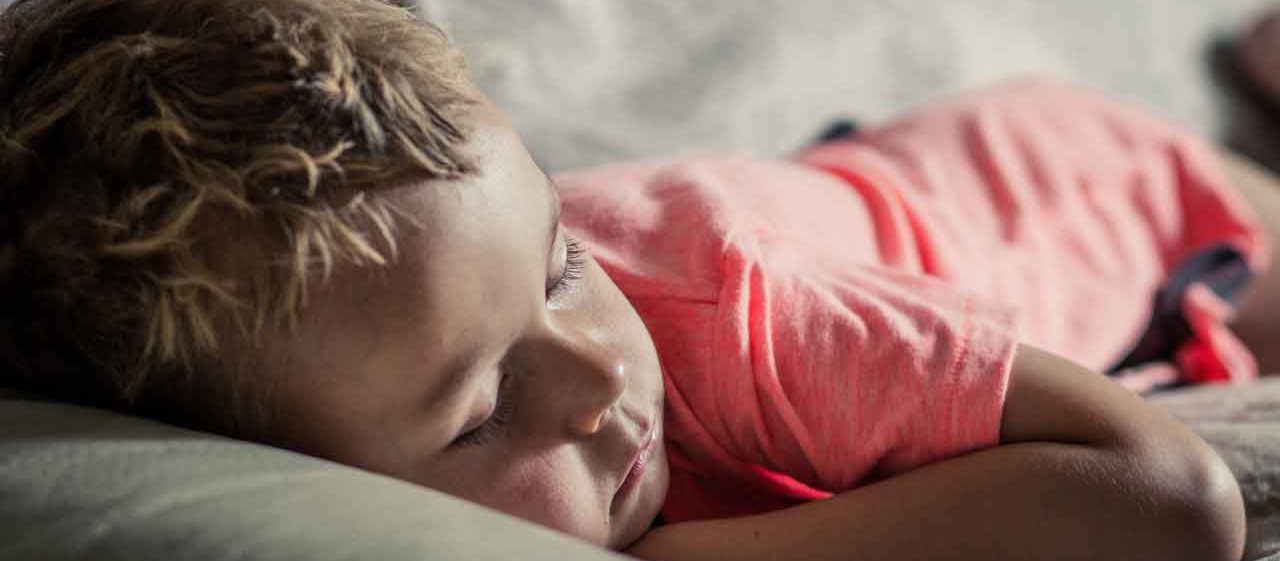Don’t Ignore Sleep Apnea in Children

If your child snores and is restive at night, check out her tonsils. Sleep apnea in children can lead to behavior problems and depression.
Children as young as two can have sleep apnea, which makes sleep unrestful. Watch your curled up little one and see if you pick up symptoms of sleep apnea — moments when her airway is blocked and she briefly stops breathing. Does she snore loudly? Toss and turn? Seem to gasp in the night?
Note: About 10 percent of children snore and only up to 3 percent suffer from sleep apnea, so snoring itself shouldn’t alarm you.
But if you see more than snoring and have other reasons to be concerned, look into sleep apnea and other sleep problems. Research has begun to link sleep apnea in children to depression, and it may contribute to obesity as well as behavioral problems.
YOU MIGHT ALSO LIKE: You Might Also Like: Home Sleep Apnea Testing
What causes sleep apnea in children?
Most of the time, the cause is enlarged tonsils, which can be treated with medication or removed. In 20 percent of cases, other illnesses are at work. For example, up to 70 percent of children with cystic fibrosis, and more than 40 percent of children with epilepsy may have sleep apnea. Children born prematurely and those with Down’s syndrome are at more risk of sleep apnea.
A child with fat accumulating in their neck is more at risk of sleep apnea, and this is especially true in boys after the age of six.
Asthma and sleep apnea overlap in children, and any child with one problem should be evaluated for the other.
When your own sleep is disrupted, do you notice that you are less focused and even-tempered the next day? There is debate about whether children with sleep issues are being misdiagnosed with attention deficit and hyperactive disorder (ADHD). As a parent, you need to know: evidence suggests that ADHD symptoms decline after the tonsils and adenoids are removed. In one study, 50 percent of children that would have met criteria for ADHD no longer did so one year after surgery.
Sleep issues should be addressed before a child goes on ADHD medication, recommends John Herman, a psychologist specializing in sleep in Dallas. But in some children, ADHD medication has improved sleep.
Treatment for sleep apnea in children
If your child’s tonsils are enlarged, surgery isn’t the only option. Medication can help. But surgery is the most common treatment, and most often eliminates the symptoms of sleep apnea with six to eight weeks.
A device that rapidly expands a portion of the mouth over six months to a year has worked in children as young as six.
Sleeping with a continuous positive air pressure (CPAP) machine is the most common remedy for adults — and depending on the source of the problem, a nose mask rather than a full nose and mouth mask may do the trick for a child. But because children keep growing, you’ll need to check the settings at least every year.
Treating allergies, asthma, and gastric reflux, as well as preventing your child from becoming obese, could also help. The American Sleep Apnea Association has a list of U.S. doctors who treat sleep apnea in children.
Updated:
February 27, 2020
Reviewed By:
Christopher Nystuen, MD, MBA